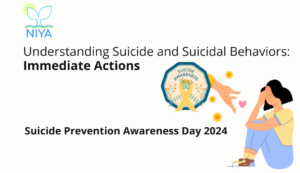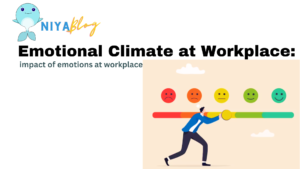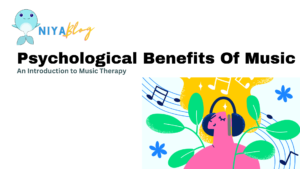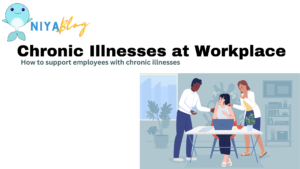
Manav had been feeling lonely and unfulfilled for a long time. Despite having a great job and all the material possessions he could ever want, he felt like something was missing. He was struggling with feelings of sadness and anxiety, and his stress levels were going through the roof.
But then, Manav made a decision to take control of his life. He reached out to old friends from college and reconnected with them. As he started to spend time with them, he was amazed by the positive impact it had on his mood. Just talking to someone who understood him and made him laugh lifted his spirits and reduced his stress levels.
Encouraged by this experience, Manav started to look for opportunities to be with like-minded people. He joined a local group that shared his interest of cycling and he found that being around positive and supportive people not only felt enjoyable, but also boosted his mental health.

Manav realized that no matter how successful he was in his career or how many material possessions he had, his relationships with others would always have a profound impact on his mental health and overall well-being. By connecting with others and forming positive relationships, Manav was able to reduce stress, boost his mood, and create a positive cycle of growth and happiness.
We can see that positive relationships play a crucial role in our mental health and overall well being.
It is widely recognized that social connections and relationships play a crucial role in an individual’s life. Humans are inherently social creatures who crave both physical and emotional bonds with others. Lot of researches reveal the significance of positive human connection for our emotional and physical health, well-being, and personal growth, especially during difficult times.
Here we will look into why having strong relationships can boost your wellbeing and help you deal with life’s challenges.
Some of the emotional and mental impacts of having positive relationships:
- Increased happiness and satisfaction: Positive relationships with others can lead to increased happiness and a sense of fulfillment, as well as a feeling of being valued and appreciated.
Example: Having close friends who are always there to lend an ear and offer support can increase happiness and overall well-being.
- Decreased stress: Good relationships can serve as a source of comfort and support, helping to mitigate the negative effects of stress on mental health.
Example: Having a supportive spouse who helps with household chores and provides emotional support can reduce stress and promote mental well-being.
- Improved self-esteem: Positive relationships with others can help boost confidence and self-esteem, which in turn can positively impact mental health.
Example: Receiving positive feedback from a mentor or boss can improve self-esteem and overall well-being.
- Reduced symptoms of depression and anxiety: Positive relationships can provide a sense of belonging and purpose, which can help reduce symptoms of depression and anxiety.
Example: Having a supportive group of friends who participate in fun activities together can help alleviate symptoms of depression and anxiety.
- Increased resilience: Positive relationships can provide a source of strength and support during difficult times, helping individuals to bounce back from adverse experiences.
Example: Having a close relationship with a family member or friend who offers emotional support during difficult times can increase resilience and improve mental health.
In addition to the emotional and mental benefits, having positive relationships can also have a significant impact on physical health. Here are some of the physical health benefits of positive relationships:
- Reduced risk of heart disease: Studies have shown that people with a strong social support system are less likely to experience heart disease or stroke.
Example: Maintaining close relationships with friends and family members who engage in healthy behaviors like eating a balances diet or engaging in physical activities can reduce the risk of heart disease.
- Improved immune function: Positive relationships can help improve immune function, making individuals less susceptible to illness.
Example: Having close friends who offer emotional support during stressful times can improve immune function and reduce the risk of illness.
- Lower blood pressure: Positive social relationships have been associated with lower blood pressure, reducing the risk of heart disease and stroke.
Example: Maintaining close relationships with friends and family members who engage in physical activities can help lower blood pressure and improve overall health.
- Improved sleep: Positive relationships can help improve sleep quality, leading to improved physical health.
Example: Having a supportive partner who provides comfort and security can lead to improved sleep and overall physical health.
- Reduced stress: Positive relationships can help reduce stress levels, which in turn can have a positive impact on physical health.
Example: Having a supportive group of friends who engage in stress-reducing activities such as exercise or meditation can help reduce stress and improve physical health.
What are some green flags of positive relationship?
Green flags are indicators of a positive and healthy relationship. Here are some common green flags in a relationship:
- Communication: Partners regularly check in with each other and have open, honest conversations about their feelings, thoughts, and concerns. They listen to each other actively and respond with empathy.
- Trust: Partners share personal information with each other without fear of judgment. They trust each other to keep secrets and not betray their trust.
- Support: One partner encourages the other to pursue their passions and interests. They are there for each other through both the good times and the bad.
- Respect: Partners respect each other’s opinions, even when they disagree. They listen to each other’s perspectives and work together to find solutions.
- Emotional availability: Partners are open to discussing their feelings and are comfortable showing vulnerability. They make time for each other and prioritize their relationship.
- Flexibility: Partners are able to adapt and change as life circumstances change. They are open to trying new things and growing together.
- Shared values: Partners share similar values and beliefs, such as a commitment to family, honesty, and hard work. They work together to build a life that aligns with their values.
- Shared interests: Partners enjoy doing similar activities, such as hiking, cooking, or watching movies. They find joy in spending time together and discovering new things.
- Equality: Partners work together as a team and make decisions based on mutual agreement. They respect each other’s autonomy and individuality.
- Positive energy: Partners bring positivity and happiness to each other’s lives. They make each other laugh, comfort each other during difficult times, and celebrate each other’s accomplishments.
People can have three types of relationships with others:
- Personal relationships: These are close relationships with people who you trust and care about deeply. They include family members, close friends, partners, and other individuals who are important in your life. These relationships are characterized by a deep sense of love, support, and understanding. For example, a person might have an intimate relationship with their spouse or a close friend with whom they have a strong bond.
- Interpersonal relationships: These are relationships with individuals who you see regularly and share common interests with. They can include colleagues, classmates or neighbours. These relationships can be more casual and may not involve as deep a connection as intimate relationships, but they still play an important role in our lives by providing social support and helping to create a sense of community. For example, a person might have an interpersonal relationship with a coworker who they have lunch with regularly.
- Group relationships: These are relationships that stem from shared membership or affiliation with a particular group. This could be a religious community, political party, or a social organization. These relationships help to provide a sense of identity and belonging, as well as a sense of shared purpose with others who share similar beliefs and values. For example, a person might have a group relationship with members of a religious organization that they belong to.
Each type of relationship provides unique benefits and contributes to a person’s overall well-being and happiness. Having a mix of different types of relationships is important for a well-rounded, fulfilling life.
Not everyone finds it easy to connect with others and build lasting relationships. However, there are several steps you can take to strengthen your positive relationships.
- Take care of yourself: Taking care of your physical and mental health can help you be a better friend and family member. For example, if you’re feeling good, you’re more likely to have the energy to spend time with loved ones and be fully present during conversations.
- Make time for others: Regular check-ins and quality time with loved ones is important for maintaining strong relationships. For instance, you could set aside a specific time each week to call or visit with a friend, or plan a monthly dinner date with family members.
- Leverage technology: If you can’t be physically present with loved ones, technology can help you stay connected. For example, you could use video calls to have virtual coffee dates, or send daily texts or messages to check in.
- Be fully present: When you are with loved ones, try to put aside distractions and be fully present. For instance, turn off your phone and give them your undivided attention during conversations.
- Share positive as well as negative experiences: Strong relationships are built on a foundation of open and honest communication. For example, you could share positive news, like a new job or an exciting trip, and also talk about challenges and negative experiences you’re facing, like a difficult work situation or a personal issue, to allow your loved ones to support you.
#positiverelationships #personalrelationships #interpersonalrelationships #grouprelationships







